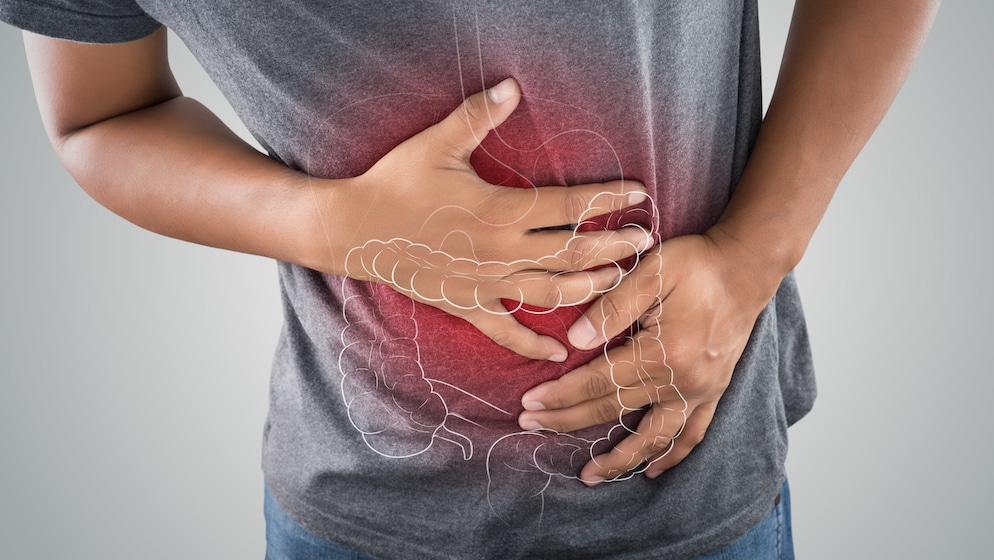5 strategies to manage a Crohn’s flare

If you’re living with Crohn’s disease, you know that abdominal pain, cramping, diarrhea, vomiting, fever, joint and body pain, fatigue, weight loss, and bleeding can mean something different for you than your friends and loved ones. Rather than something you ate, or a stomach bug, for you, these symptoms sometimes mean the start of a disease flare-up. For people living with Crohn’s, symptoms can come on quickly or more slowly over time.
The most important thing to do if you suspect you’re having a flare: contact your GI provider right away. Your GI provider can help you determine the best ways to alleviate your symptoms and get your disease back under control, such as prescribing steroids or other medication to reduce inflammation when necessary.
Here are 5 other strategies that may help calm and heal your gut, and restore balance to your life when you’re living through a Crohn’s flare:
1. Consider a temporarily modified diet
For example, low fiber or low residue diets can allow for your intestines to take a break and rest. Your GI provider and GI Registered Dietitian can provide more tailored guidance about foods to eat and foods to avoid when you’re experiencing a Crohn’s flare-up.
2. Manage abdominal pain and spasms, if possible
For pain, avoid NSAIDS (aspirin, ibuprofen, or naproxen sodium) and reach for over the counter medications like acetaminophen. Consider trying warm compresses or heating pads, or warm baths or showers to reduce pain as well. Additionally, your GI Behavioral Health provider can work with you on relaxation techniques like meditation and breathing exercises to help relieve pain sensations.
3. Rest!
Poor sleep is not good for Crohn’s symptoms, and when you are sick, rest is best. Practice good sleep hygiene when possible, such as limiting screen time before bed, and keeping your room cool and dark. If you’re up a lot during the night dealing with symptoms, try to take it especially easy the following day.
4. Stay hydrated
Hydrate with water — and electrolyte replacements, if needed — to help minimize fluid loss from diarrhea and vomiting. Try avoiding electrolyte replacements that contain high amounts of sugar, artificial sweeteners or corn syrup as these can often cause more bowel movements and cramping.
5. Take care of your mental health, in addition to your physical health
Crohn’s flares can put you into a tailspin, and emotionally, you may need support. A GI Behavioral Health provider is here to help you understand and cope with the physical pain and complicated feelings around disease flares, communicate your needs to friends, colleagues, and loved ones, and plan for next steps to get your life back on track.
While Crohn’s disease flares can be unpredictable and challenging, your team at Oshi Health is here to connect you with the resources you need for good health and healing, and help get you back to feeling better.


